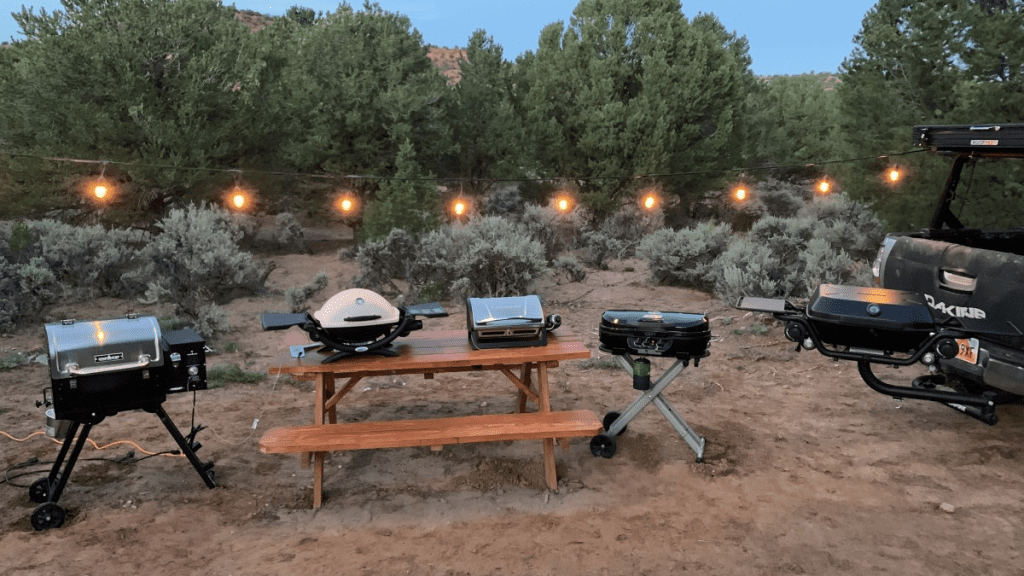Cooking is a daily necessity in most homes, but it’s also one of the leading causes of house fires. Firefighters have seen the worst-case scenarios time and time again, and they consistently stress the importance of not leaving cooking activities unattended. This article will delve into the top ten things that you should never leave cooking alone and why constant vigilance in the kitchen can save your home and life.
Understanding the Risks of Unattended Cooking

It’s easy to get distracted when cooking. You step away for what seems like just a minute, only to return to a dangerously smoky kitchen or, even worse, an active fire. The reality is that unattended cooking is the leading cause of kitchen fires. Knowing the specific activities that pose the highest risk can help you avoid these disasters.
Why Firefighters Stress Constant Vigilance
Firefighters emphasize the importance of staying present while cooking because they have witnessed the destructive aftermath of kitchen fires. Even something as seemingly harmless as leaving a pot on the stove can lead to a full-scale fire. With the right precautions and a commitment to vigilance, you can significantly reduce the chance of a cooking-related fire.
1. Hot Oil and Grease: A Leading Cause of Kitchen Fires
One of the most dangerous cooking activities is working with hot oil or grease. Grease can ignite quickly when it overheats and reaches its flashpoint. What’s more, grease fires are notoriously difficult to control once they start. Always keep a close eye on hot oil and have a metal lid or baking soda nearby in case you need to smother any flames.
2. Frying Pans and Skillets: A Fire Hazard When Left Unwatched
Frying pans, especially those filled with oil, are one of the biggest culprits behind kitchen fires. Food can burn quickly, and excessive grease can cause dangerous flare-ups. Even stepping away for a moment while using a frying pan can be disastrous. Stay by the stove and continuously monitor what’s happening in the pan to ensure the food doesn’t catch fire.
3. Saucepans and Boiling Liquids: Serious Spill Hazards
Boiling liquids in saucepans might seem low-risk, but they can lead to fires and other dangerous situations if left unattended. Overflowing liquids can extinguish gas burners, releasing dangerous gases, or cause electrical shorts if they come into contact with heating elements. Keep an eye on pots of boiling water and make sure you’re adjusting the heat to prevent any overflows.
4. Baking and Roasting: The Oven Can Be a Danger Zone
Baking or roasting usually involves leaving food in the oven for an extended period. While it’s tempting to leave the kitchen during this time, unattended ovens can still pose significant fire risks. If food spills or crumbs build up in the bottom of the oven, it can lead to fires. Always check your food periodically and ensure your oven is clean and functioning properly.
5. Pressure Cookers: Explosive Risks If Neglected
Pressure cookers are great for quick meals, but they can become dangerous if left unsupervised. If too much pressure builds up or the safety valve malfunctions, pressure cookers can explode, causing severe injuries and fires. Never leave a pressure cooker running without supervision, and always follow the manufacturer’s safety instructions to avoid accidents.
6. Grills and Barbecues: Outdoor Cooking Needs Close Attention Too

Even when cooking outdoors, grills and barbecues require constant supervision. Grease drippings can cause flare-ups, and windy conditions can turn a simple cookout into a fire hazard. Keep your grill in a safe, open area away from flammable materials, and never leave it unattended while in use.
7. Slow Cookers and Crockpots: Low Heat Still Carries Risk
While slow cookers and crockpots operate at low temperatures, they’re not completely risk-free. Electrical malfunctions or accidental spills can still cause fires. Make sure your slow cooker is on a stable surface, regularly check its progress, and never leave the house with it running.
8. Toasters and Toaster Ovens: Quick But Potentially Dangerous
Toasters and toaster ovens can start fires if crumbs build up or food becomes stuck inside the appliance. Always clean these devices regularly and stay nearby while using them. This will allow you to act quickly if something goes wrong, preventing a small issue from turning into a larger fire.
9. Microwaves: Not As Safe As They Seem
Microwaves are another common kitchen appliance that can be more dangerous than many people realize. Improper use, such as putting metal objects inside or using inappropriate containers, can cause sparks and fires. Overheating certain foods can also lead to ignition. Always follow safety instructions and avoid leaving the room while your microwave is in use.
10. Open Flames: Candles and Stove Burners Demand Full Attention

Whether it’s a candle on the counter or a burner on the stove, open flames should never be left unattended. A momentary distraction can lead to a fire that spreads quickly throughout your home. Always double-check that all flames are properly extinguished before leaving the kitchen, and never walk away from an active burner or an open flame.
Conclusion: Practicing Safe Cooking Habits Can Prevent Fires
Kitchen safety starts with understanding the risks and adopting good habits. The next time you’re cooking, remember that even a brief distraction can lead to a fire that endangers your home and family. Stay in the kitchen, monitor your food closely, and follow the safety tips discussed here to significantly reduce the risk of a kitchen fire.
Preventing fires begins with awareness and action. Stay vigilant, never leave cooking unattended, and you’ll keep your kitchen—and your home—safe from disaster.


